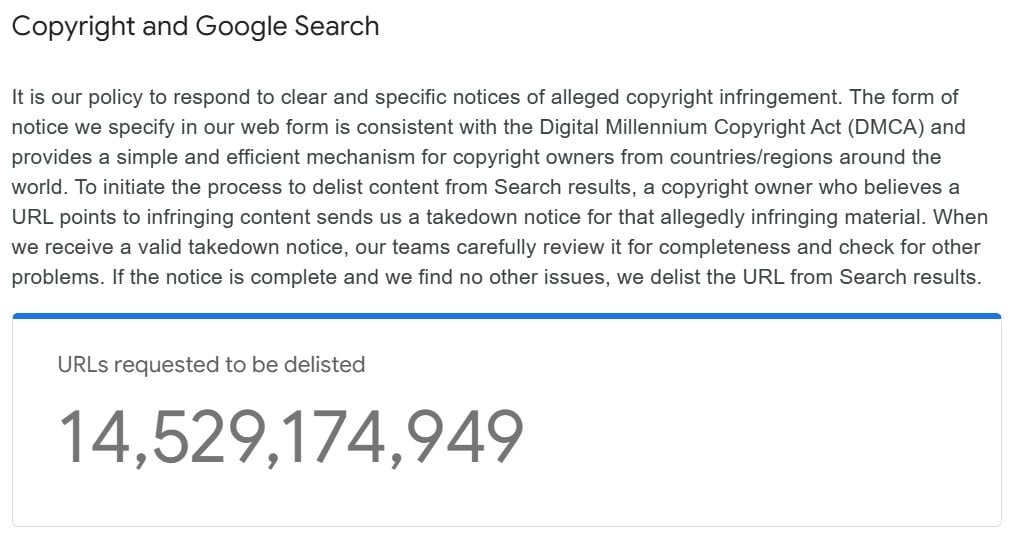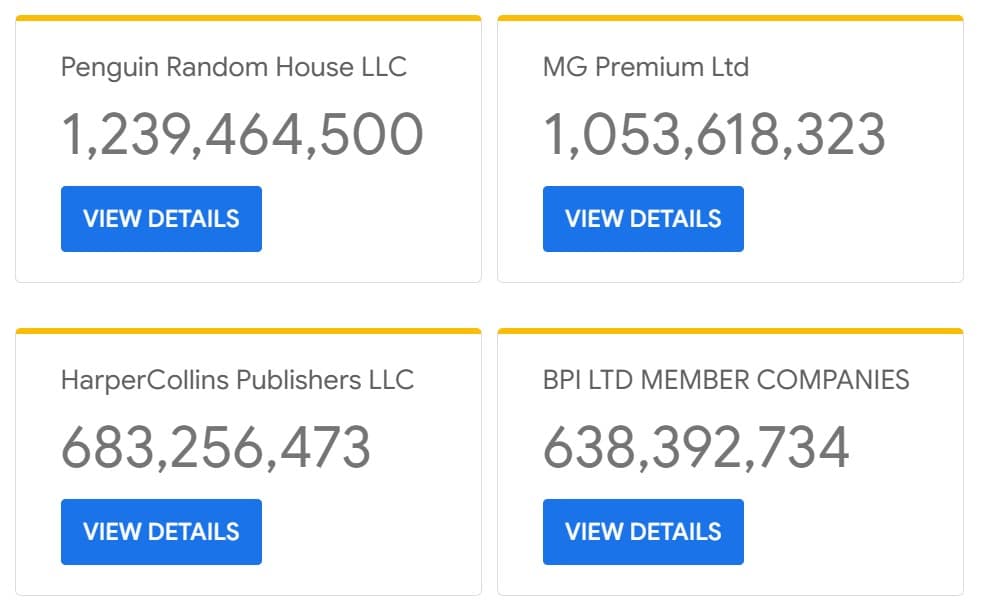 In the spring of 2012, Google formally launched its Copyright Transparency Report, sharing details on all copyright-related removal requests, including the targeted links and their senders.
In the spring of 2012, Google formally launched its Copyright Transparency Report, sharing details on all copyright-related removal requests, including the targeted links and their senders.
In the years that followed, the number of reported URLs increased significantly. The company processed its five billionth DMCA takedown notice almost a decade later in 2021.
At the time, it appeared that the upward trends had reversed, with the number of takedown requests starting to decline substantially. However, that turned out to be the calm before the storm.
Google Search Transparency Resumes
In April this year, we reported that Google’s transparency reporting had stalled, freezing all public data since mid-April 2025. This unexplained hiatus happened at a time when DMCA notices were rising rapidly, with hundreds of millions of URLs being flagged every week.
The lack of updates was a significant departure from the multiple-times-a-week schedule that had been in place for over a decade. These updates were at the center of much of our takedown reporting, including the 10 billion milestone reached less than a year ago.
Google Search resumed the public updates in its transparency report a few days ago. While it’s too early to tell whether the old updating schedule will be resumed, the newly shared figures indicate that there is no slowdown in the takedown volume at all.
5 Billion Reported URLs in a Year
As shown below, as of September 18, 2025, the company has received reports for 14,529,174,949 allegedly infringing URLs. This means that more than 2 billion were added over the past few months.

These are staggering numbers, especially when put into context. Over the past year, rightsholders asked Google to remove five billion URLs from search results, while it previously took nearly ten years to reach the same milestone.
At the current rate, assuming takedowns continue 24/7, an average of roughly half a million ‘pirate’ URLs are flagged every hour.
Publishers, Publishers, Publishers
A closer look at the data shows that the key players and targets remain largely the same. Dutch anti-piracy outfit Link-Busters continues to be a dominant force, sending a massive volume of requests on behalf of major book publishers.
Link-Busters alone is good for roughly three of the five billion URLs that were reported to Google over the past year. The same company, and the publishers it works for, are now responsible for more than 30% of all DMCA reports Google Search has received since 2012.
These notices are sent by Link-Busters on behalf of publishing giants including Penguin Random House, HarperCollins Publishers, and Hachette, making up the majority of all takedown efforts.

As shown above, Penguin Random House has taken the number one spot as the most active DMCA sender in the rightsholder category, taking over from the adult entertainment outfit MG Premium. Meanwhile, HarperCollins has secured the third place in this ranking, taking over from music industry group BPI.
All in all, the return of Google’s transparency report is a welcome development. It helps to paint a clearer picture of modern anti-piracy takedown efforts, a relentless, high-volume battle that shows no signs of slowing down, for now.
From: TF, for the latest news on copyright battles, piracy and more.
Powered by WPeMatico
